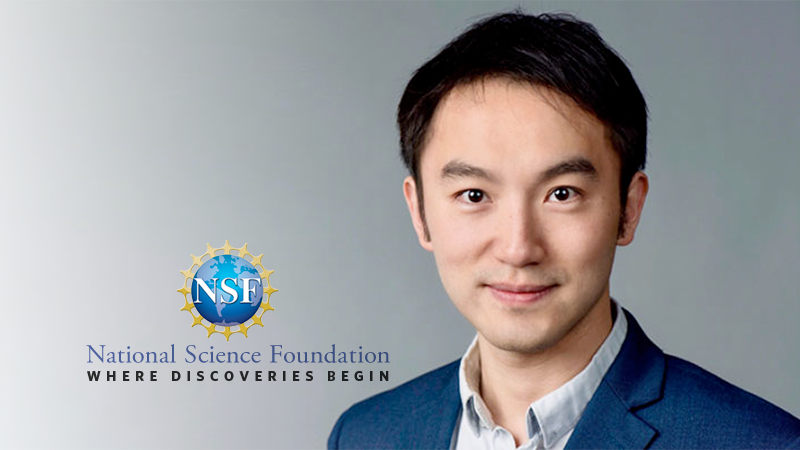UCLA Researchers Awarded NSF Grant to Develop Dynamic Architected Materials

Xiouyu “Rayne” Zheng
Architected materials are materials in which the shapes and patterns of their constituent microstructures play a significant role in determining what the materials do and how they respond to forces. Advances in their design could open a broad range of potential applications, such as energy and shock absorption, stretchable and flexible electronics, acoustic wave filtering and materials with more than one function.
For example, such materials could be used in a helmet that blocks out most sounds except those at specific frequencies. Or, they could be used throughout a vehicle to better absorb and instantly redistribute the shockwaves from a collision or a projectile, protecting the driver and passengers.
These behaviors are called “dynamic fingerprints” because the desired absorption behaviors can be encoded in an architected material through the design of their topological features.
However, there has been no practical way to design such materials with those dynamic properties.
To demonstrate a simpler way to create architected materials with those characteristics, the researchers will incorporate machine learning, graph network theory and high-speed 3D printing techniques. They will start out with predetermined performance metrics, then design and make custom-tailored materials using machine learning to analyze a large quantity of training data and create graphical representations of their findings.
Zheng is the lead principal investigator of the research. The grant’s co-principal investigators are Wei Wang, UCLA’s Leonard Kleinrock Professor of Computer Science; Yizhou Sun, an associate professor of computer science; and Mathieu Bauchy, an associate professor of civil and environmental engineering. The team will also collaborate with Yun Jing, an associate professor of acoustics at the Pennsylvania State University.
The project will also provide unique training opportunities for the next generation of computer scientists and advanced manufacturing engineers.
Zheng, who also holds a faculty appointment in the Mechanical and Aerospace Engineering Department, leads the Additive Manufacturing and Metamaterials Laboratory. This is his second NSF grant this year. In March, he received the foundation’s CAREER Award to develop rapid 3D printing processes for electronic components.
